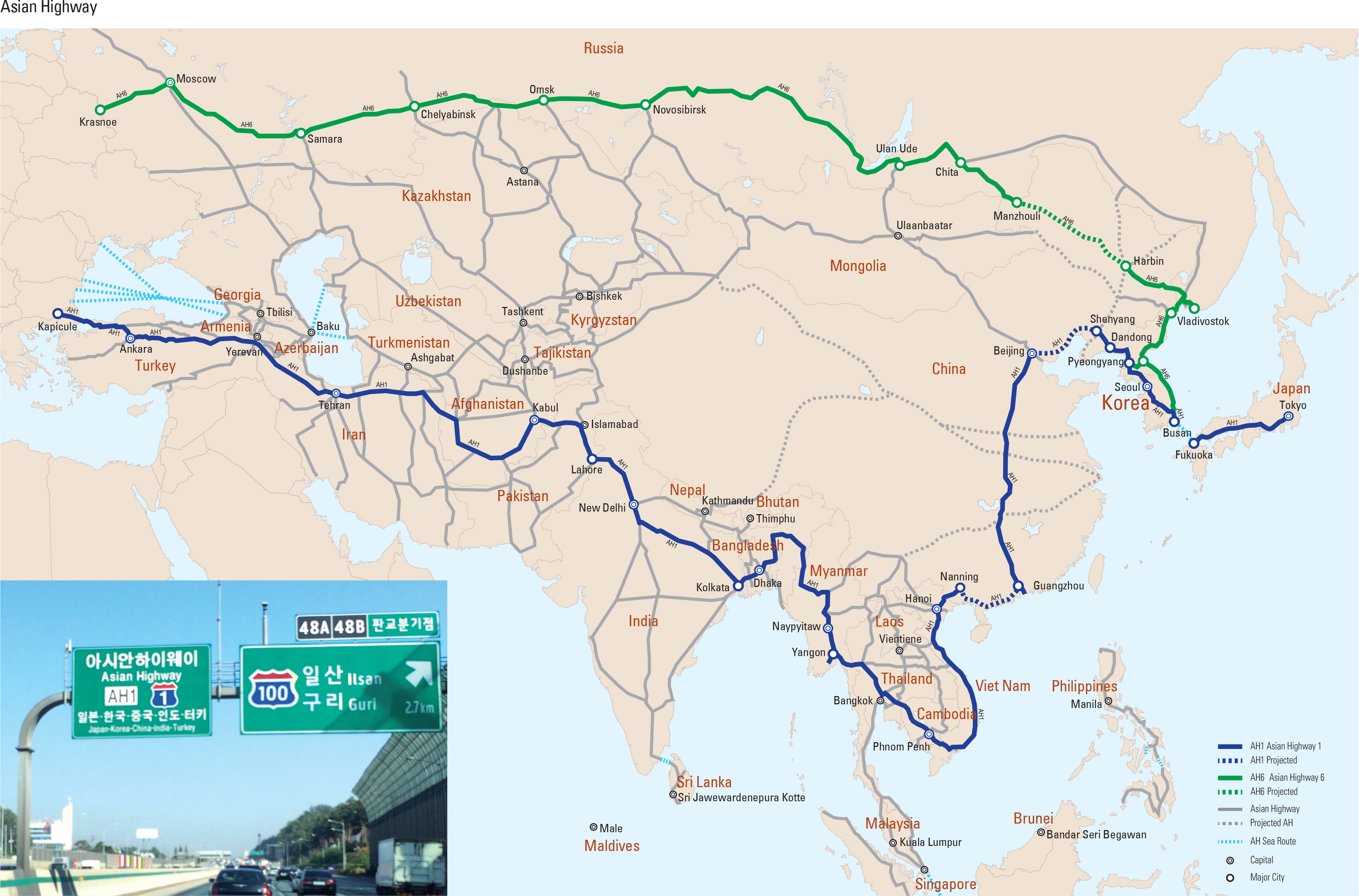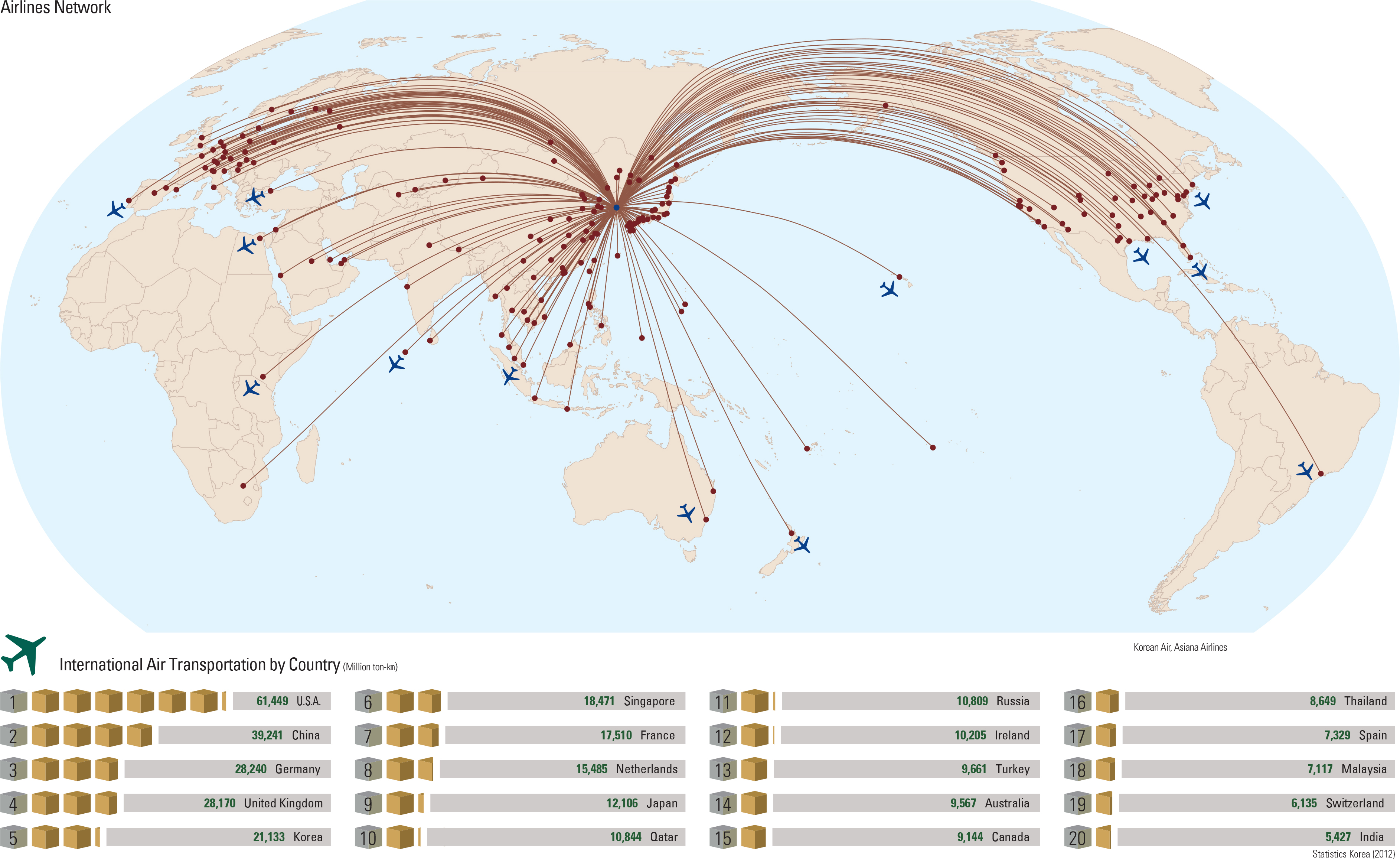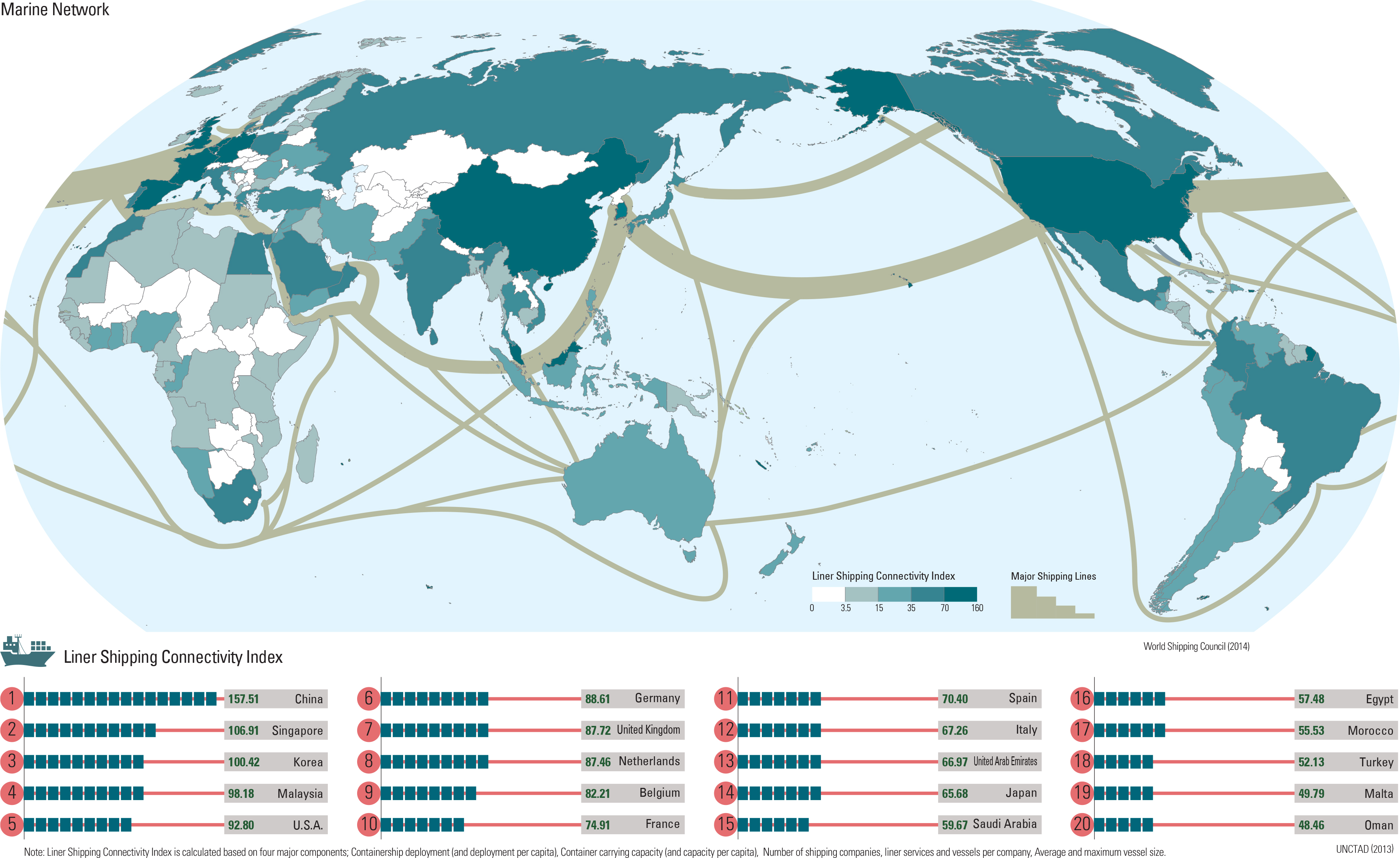The Korean territory has great potential in terms of global accessibility. It is connected to major cities around the world via aviation and marine routes. The government has established plans to maximize Korea’s global potential by increasing its accessibility to regions in Eurasia through connecting railroads and roads.
The Trans-Asian Railway (TAR) is now connected to routes such as the Trans-Siberian Railway (TSR), the Trans-China Railway (TCR), the Trans- Manchurian Railway (TMR), the Trans-Mongolian Railway (TMGR), and the Trans-Korean Railway (TKR). The goal at present is for Korea to become an advanced gateway for the logistics and transport industry. Recently, Korea Railroad corp.(KORAIL) made significant progress in the initiative for constructing a transcontinental railroad by joining an Organization for Co-operation between Railways comprised of 27 countries, including Russia, China, and North Korea. With the advancement of railway transportation, the United Nations Economic and Social Commission for Asia and the Pacific (ESCAP) took the lead in the Asian Highway (AH) Project to connect the network of roadways in order to promote exchanges and cooperation among Asian nations. The AH Project was initiated in 2005 and an agreement has been signed by 32 countries in Asia to allow highways totaling approximately 140,000 ㎞ to cross the continent, utilizing 55 routes, including 8 major ones. In Korea, two AH routes will run across the country: AH1 is proposed to run from Tokyo to the border with Bulgaria, and AH6 will run from Busan via Russia to Georgia.
The economic potential inherent in the geographical location of Korea has now been fully activated in large part due to Korea’s longstanding investment in its infrastructure. As a result Korea is becoming a powerhouse in both the aviation and marine industries. As of September 2012, the Incheon International Airport has evolved into a hub airport for East Asia, with 88 airlines linking 182 cities in 58 countries. This potential and the growth of trade have laid a foundation for Korea to become the world’s 5th biggest leader in air transportation. Korea is also at the heart of the world’s major shipping networks, such as Northeast Asia-Southeast Asia and Northeast Asia- North America. Korea ranks 3rd according to the Liner Shipping Connectivity Index (an indicator of how well countries are connected to the global shipping network), following only China and Singapore.



